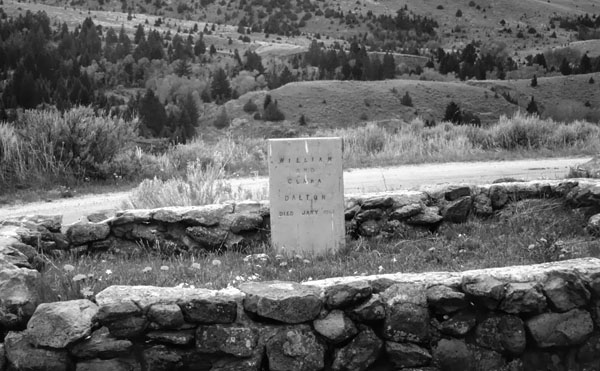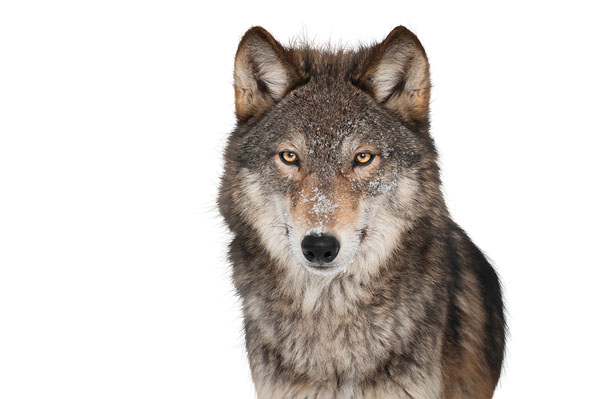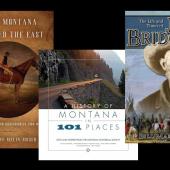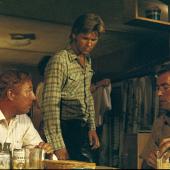Wild West Words: Wilderness, Wolf, Boot Hill/Graveyard/Cemetery
Wilderness, Wolf, Boot Hill/Graveyard/Cemetery
Department Heritage
Boot Hill / Graveyard / Cemetery

The remains of assorted forgotten frontier characters repose in Boot Hills scattered throughout the American West. In Montana, Boot Hill graveyards lie a-moldering in Virginia City, Billings, and Powderville, a stop on the stagecoach line from Deadwood to Miles City in the southeast corner of the state. In each frontier graveyard (styled after the original Boot Hill Cemetery in Dodge City, Kansas) scofflaws there buried were said to have died “with their boots on” in violent confrontations.
Elsewhere in North America and other English speaking regions, the deceased have for centuries been laid to rest in graveyards and cemeteries attached to churches. The Oxford English Dictionary traces the unpretentious, utilitarian graveyard to an English document dated 1767.
The term successfully survived the jump across the Atlantic and is commonly used by American English speakers as another moniker for a burial ground.
The etymology of the word cemetery suggests it was adopted by both Latin and English speakers as a euphemism to blunt the sting of death. Its origin is a Greek word meaning “dormitory” or “sleeping place,” which aligns with the Christian belief that the deceased merely slumber while awaiting resurrection. It was applied by early Latin-speaking Roman Christians to the catacombs and other burial places where the martyrs “slept.” The term made it to the English language as long ago as 1387 and has been in circulation since, even throughout the American West, where those not interred in Boot Hills rest in cemeteries, their temporary “sleeping places.”
Wilderness
The New World was a continent of mysteries when European settlers landed on its wooded shores in the early 1600s. The first English-speaking colonists applied the word wilderness to the dark, ancient forests that stretched seemingly forever in all directions.
It was a polite title by 17th century European standards. Wilderness was, for four centuries prior to North American colonization, the term reserved for uninhabited, uncultivated land. In an English memoir called The Travels of Sir John Mandeville published circa 1400, the author describes a certain European landscape as “waste and wilderness and not inhabited.”
The New World certainly was inhabited, but not by people whose agriculture, settlements, and cultural practices resembled those of the newcomers. For them, the presence of indigenous people likely made the “wilderness” seem “wilder.”
At the heart of wilderness is the Old English term wilddeoren,
“of wild beasts.” Etymologically, wilderness is a place where untamed beasts outnumber domestic ones.
A newer sense of the word was developed for America’s Wilderness Act, signed into law by Congress in 1964, which recognized wilderness as “an area where the earth and its community of life are untrammeled by man, where man himself is a visitor who does not remain.”
Wolf

The word wolf has a long history in the English language. The Oxford English Dictionary traces its first citation to the year 725, when wolves were common in the British Isles and throughout western Europe. All the Germanic languages—Dutch, Swedish, Norwegian, German and English—have similar-sounding words for the creature.
English-speaking immigrants to North America found the word serviceable, as the animal was ubiquitous throughout the continent. The first American citation of the word wolf dates to The Generall Historie of Virginia (1624) by Captain John Smith, British-born historian and leading founder of the Jamestown colony. Of the animals, Smith wrote, “The Woolves [are] not much bigger than our English Foxes.”
Because the colonists brought a name for their familiar European animal, they largely ignored the native terms mahigan (Algonquin), shunkaha (Lakota), kiyiu (Seneca) and kooi (Kiowa).
Meanwhile, Spanish-speaking arrivals to the south of the continent imported their word for the creature, lobo, from the Latin lupus. From this branch of the language tree comes the scientific designation for the wolf, Canis lupus.
Wolf shows up in some unexpected linguistic corners. The Old High German name Athalwolf means “noble wolf,” with Adolph its modern version. Similarly, Hrodulf, the Old High German name meaning “famed wolf” is the precursor to the modern Rudolf. The Louvre (from the French loup, “wolf”) in Paris is said to have been established on the site of a wolf-kennel built during Roman occupation.












Leave a Comment Here